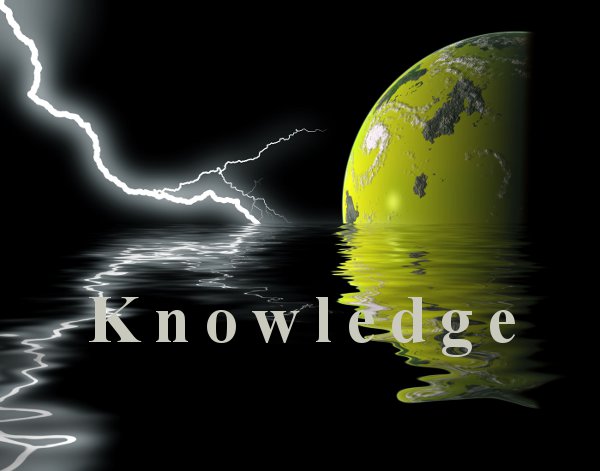“Information pollution is the odorless, invisible sewerage of human intelligence, somebody has to clean it up.”

If you go to the Wikipedia page for pollution, you will see several forms of pollution from air varieties to water bound forms, but you will not find information pollution there. This is an excellent example, and a reference point to indicate where our current awareness stands on this issue.
Information pollution, not only should it be in that list with capital letters, but it should also be considered as a prime candidate for some doomsday scenarios. Let me emphasize DOOMSDAY by typing it one more time in caps. Let me be crystal clear and blunt here;
“If unchecked, information pollution will bring the end of human civilizations on earth.”
Now that I have your attention, let me begin some explanation. If you want to come up with the worst kind of pollution problem, just start listing the following characteristics:
- Intangible – people cannot touch, smell, hear, or visualize its collective volume of effect
- Addictive – worse than smoking, pollutant satisfies our natural hunger with strong addiction
- Invisible Cost – chips away world’s resources (power usage) at such small increments per the dose of the pollutant, so that people cannot be made aware easily, and they would not feel guilty in any manner.
- Widespread – applies to all human beings until we train our pets to use mobile devices next.
- Destructive –worse than power blackout, networks clogged with this pollutant can bring down financial systems, disable security systems, trigger wars, and cause many more severe sudden death scenarios.
- Long Term Effects – pollutant makes new generations more exposed but less educated progressively, contributes to the decay of cultural and social values.
- Encouraged by law – storage of the pollutant is required by law and its elimination is illegal.
- Elusive – hard to recognize the pollutants
- Irreversible – once it is out and spreads, it’s impossible to eliminate
Now here’s the clincher: “The list above is information pollution.” No other pollution problem satisfies such a broad list of disastrous characteristics.
 Now you may ask: “What is wrong with the old-school thinking of more information is better?” The answer is actually fairly easy to understand. INFORMATION and KNOWLEDGE are two different things.
Now you may ask: “What is wrong with the old-school thinking of more information is better?” The answer is actually fairly easy to understand. INFORMATION and KNOWLEDGE are two different things.
Knowledge is the processed information for the use of mankind for some purpose. More knowledge is a good thing, but knowledge can only be created at the rate of a human brain’s processing capacity. We are, you and I, the biological bottle necks of knowledge creation.
The exponential increase of information (we are subjected to) makes the linear pace of knowledge creation more difficult and less precise. As a result, KNOWLEDGE creation in the future will grossly suffer from quality (woes) as information pollution continues to grow exponentially. Understand please, even now this pollution will dilute the average content quality at the same pace as exponential information growth. The catastrophic mid term result of this will make younger generations more exposed, but less educated.
When exposed for the first time to the term ”information pollution”, many people will immediately associate it with SPAM and say “oh I know, I have a spam filter anyway.” But, SPAM is actually a minute fraction of the information pollution problem, and in many cases harmless because it readily advertises itself to be SPAM, hence it is very easy to be deleted. Non SPAM (labeled) information pollution is the main problem, and far more difficult to combat.
Each item in the list of characteristics tabulated above is itself a subject for another blog post. For example, let’s take the cost of information pollution. Not many people realize that each time they type a word on their computer, there is a tiny cost (power cost) that depletes world resources. Perhaps each word is no more valuable than a single leaf on a tree, but if we are talking about 500 billion Web pages, nearly 1 billion people posting on Facebook, double that sending text messages, then you can see it all adds up quickly.
All that information entered into this giant ecosystem has to be stored for legal purposes, because the FBI (or other similar agencies) wants to track down potential future crime and lawyers want data as potential evidence, and a multitude of other reasonings. Storing all that information is additional, on-going cost, almost in perpetuity. Imagine all the billions of pages of useless data tasking the system.

So, how do we tackle this sneaky problem? Here are the first potential steps:
- Increase awareness as the first and most difficult step
- Educate people that information pollution is not different than any other environmental problem
- Encourage new technologies to delete obsolete, inconsequential, and junk information
- Regulate information capacity, if not by penalties, at least by cost
My main interest among those possible actions is the new technologies that can delete information intelligently. These will require semantic processing of information at levels much higher than what is available today. Unfortunately, there has been no DELETE technology ever invented, or even mentioned anywhere, except for SPAM filters.
Perhaps our first real taste of information pollution emerged post 9/11 when FBI and HS agencies were overwhelmed by the number of tips they received. The US Government is hard pressed for declassifying documents and some special emphasis had been given to new redaction technologies. However, most of the work is still done manually. The problem actually creates an opportunity for entrepreneurs are wide open for those who can foresee the upcoming demand. I have started a Facebook page http://facebook.com/informationPollution on this matter for people who are interested in this particular pollution issue.
If the Mayan calendar suggesting a doomsday scenario next month could capture the imagination of millions, which is a byproduct of information pollution, what would it take to attract peoples’ attention to an actual doomsday scenario in which they are contributing to its inception daily? Is it possible to alert people without the help of the fictitious marketing power of information pollution itself? Only time will tell. As for the quest for knowledge amid such information pollution, I am reminded of an age old adage:
“The hardest thing of all is to find a black cat in a dark room, especially if there is no cat.” ― Confucius
Photo credit: Mayan image – courtesy © Tim Aßmann – Fotolia.com, Pollution – courtesy © ognjen – Fotolia.com





